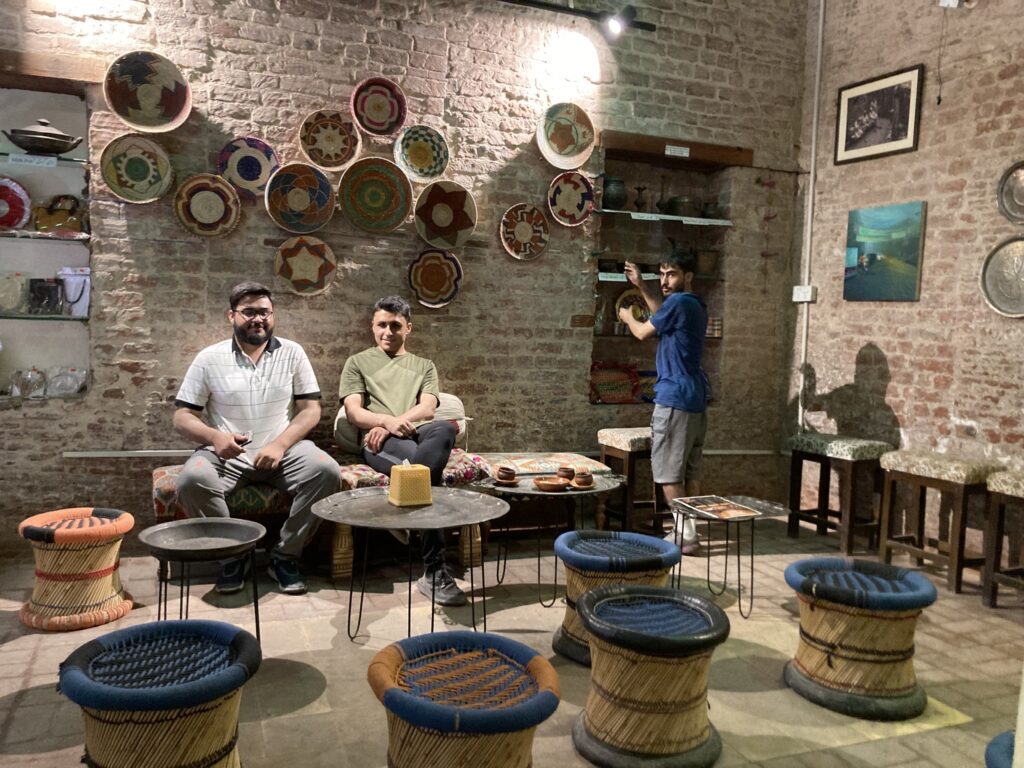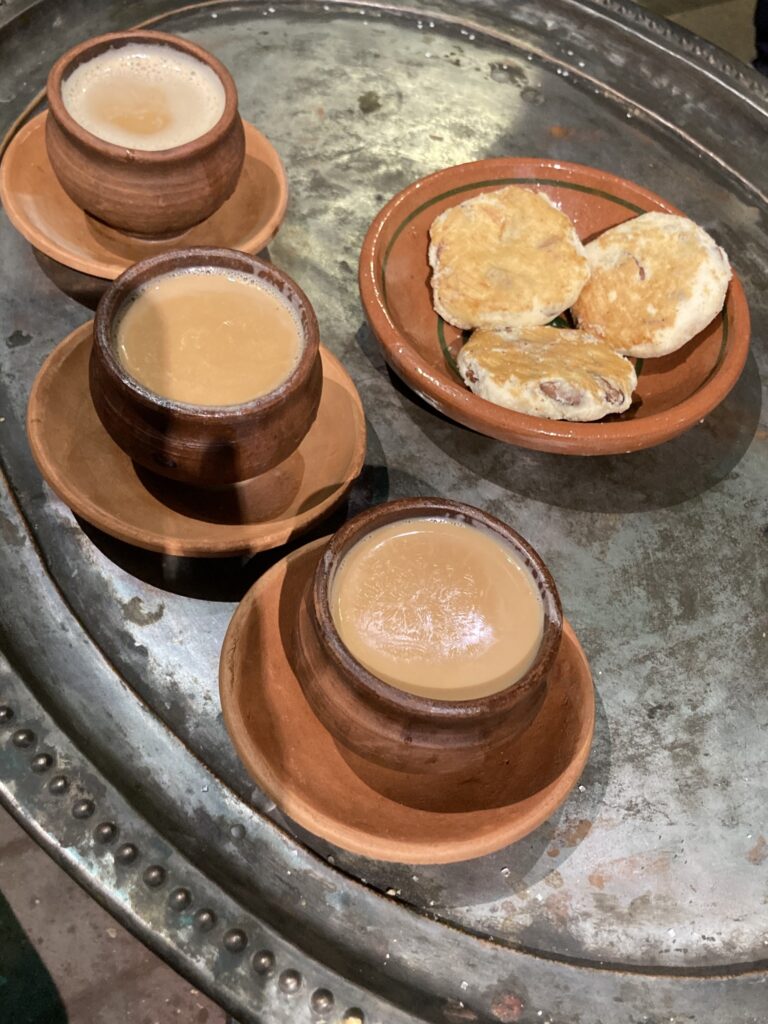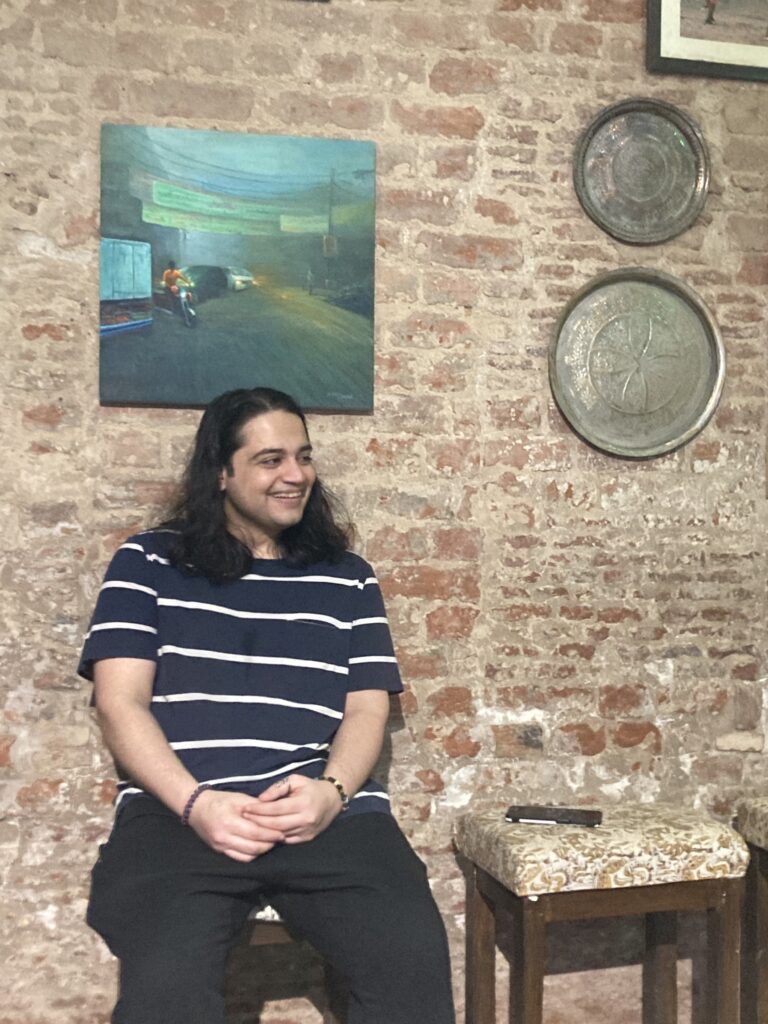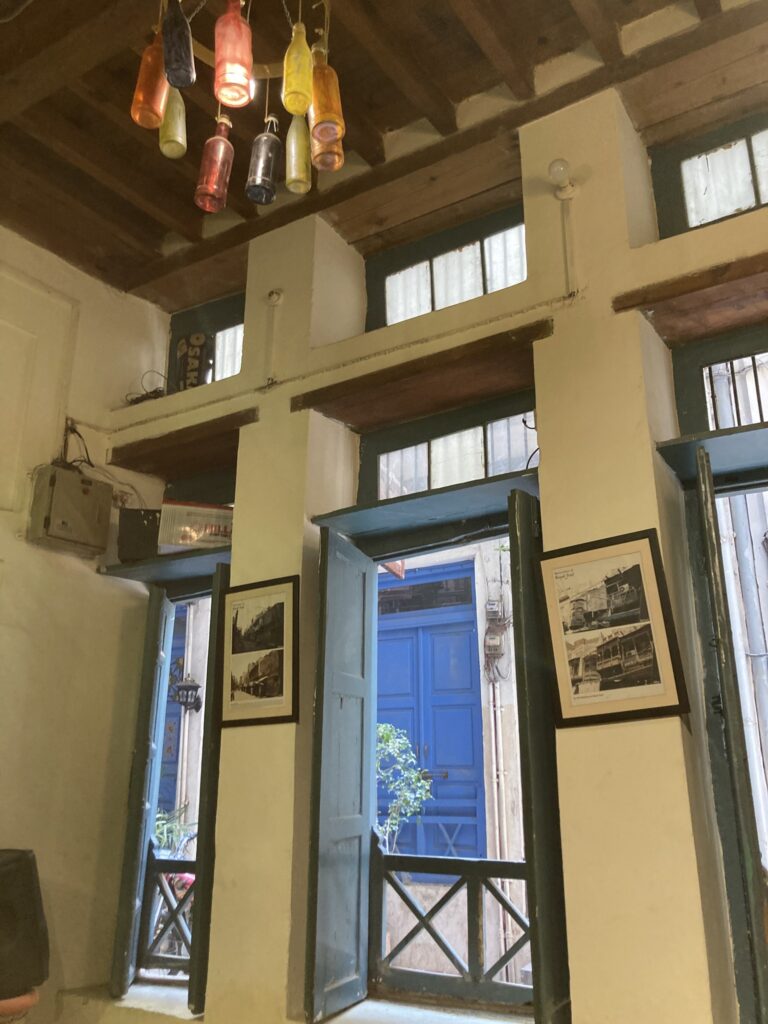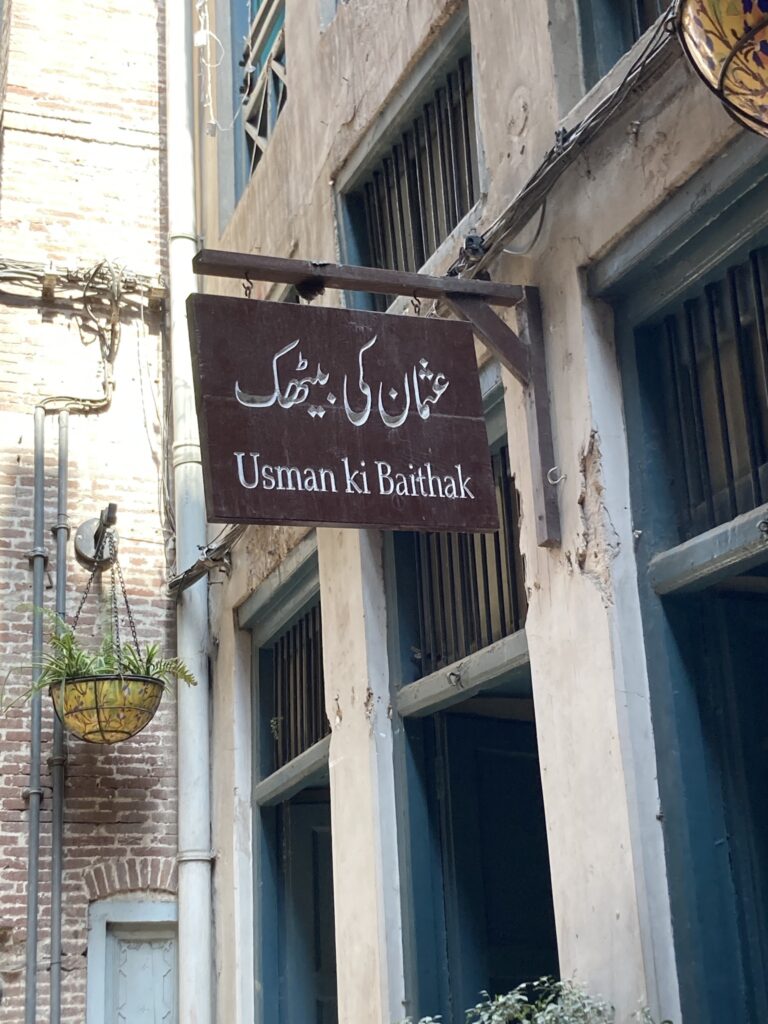Usman had us stop at a baithak. What is a baithak, you ask? Essentially a public parlor, I think — it’s a sitting room where anyone is welcome to sit down and hang out and chat. They had some local art available for sale, and a menu for ordering chai and snacks.
So it’s sort of like a coffeeshop, but with a different emphasis? You don’t have to order or buy anything; you can just hang out. I think. It was also clearly a place where guides brought tour groups, and presumably there was some passing along of money going on, but it was all a bit mysterious to me.
It was lovely anyway, and if you like almond, Lahore’s almond cookies are terrific.
I just tried to look up a definition for a baithak, and I got this: Session. Also Affair, Assembly, Concourse, Conference, Discussion, Hearing, Huddle, Meet, Period, Showdown, Sitting, Term and Jam Session. ![]()
Wikipedia says: “Baithak or Bethak literally means “seat” or “place to seat” in several languages from South Asia. Baithak or Bethak may refer to: Pushtimarg Baithak, a sacred sites in Pushtimarg tradition of Vaishnava Hinduism. Mehmaan khana, the sitting rooms of North India and Pakistan.”
And a little more about Mehmaan khana, aka hujra: “As old as perhaps the Jirga itself is, Hujra is a community club situated in each village, each Khail (street) and some times owned by a well off family but shared by the whole community. Other than a place to accommodate collective ceremonies, male members of the community who hang out and associate like a larger family regularly attend hujra(s). Members of a Hujra are mostly close relatives but other people from neighborhood are also welcomed. Elderly people spend their day to enjoy hubble-bubble and chat over the tea, younger men in their spare time listen to the stories of elders and raise issues while the children keep playing around, waiting for a call from one of the elders to take a message or bring fresh tea. A guest house for male guests, Hujra also serves as a place to initiate Jirgas. Issues are put on the table, brainstormed and a consensus is developed before the issue can be put to the wider community. Hujra is considered to be a secular place but closely associated with Hujra is the role of mosque in the neighborhood. Although there are few similarities between a mosque and a Hujra, the role of mosque has gained more importance recently due to many national and regional settings tilted towards Islamization. Additionally, the role of Hujra is diminishing from community life because of the economic trends, and a faster pace of life which allows little leisure time with people to spare for community based activities. Decay in the institution of Hujra is definitely affecting the efficacy of Jirga, but this study tends not necessarily to argue for reinvigoration of Hujra; rather our focus will remain to find strengths and challenges for Jirga from where it is today and move forward.”
Does that definition tell you what a Jirga is? It does not. I mostly got it from context, but just in case, I looked it up: “A jirga (Pashto: جرګه, jərga) is an assembly of leaders that makes decisions by consensus according to Pashtunwali, the Pashtun social code. It is conducted in order to settle disputes among the Pashtuns, but also by members of other ethnic groups who are influenced by them in present-day Afghanistan and Pakistan.”
Lahore, Pakistan

